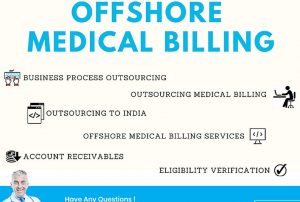The Rise and Fall of Offshore Medical Billing Services

As we see, changing trends in almost every industry appear because of the successful and speedy integration of Information Technology. We also notice the demand for Medical Billing Services exploding. This is probably because Medical Billing Services are great for increasing productivity and efficiency within the medical clinics and hospitals. Many Medical Billing Service companies like Park Medical Billing have become popular for this reason. Some years ago, the trend of moving these Billing Services offshore began. This was done primarily to save money and cut down in-house costs. This was also done to increase in-house productivity. However, was this a step in the right direction? This article will discuss how Medical Billing Services has shifted abroad and how they eventually failed to create an impact.
What does “Offshore Medical Billing Services” mean?

Stopping in-house vending of Medical Billing Services and shifting them to vendors abroad is known as Offshore Medical Billing Services. Now, one must be curious to know why service providers feel the need to do this. Well, initially this practice began only to cut down in-house costs and ultimately increase efficiencies and productivity as well. However, this trend slowly changed with time since Offshore Medical Billing Services were not as effective as it was previously thought, since many such activities resulted in losses rather than promoting savings. Now, why did the trend of Offshore Medical Billing Services halt?
The Fall of Offshore Medical Billing Services
It was later realized that shifting these services offshore actually decreased efficiencies as the time taken to process and receive payments increased significantly. This was because offshore companies required a longer onboarding period. Because of this, many payments could not be processed on time. Besides this, there was a significant increase in the overall denial rate and a lower rate of reimbursement. This resulted because of a lower-case mix index. For this, productivity also decreased. Towards the end, it was realized that all the savings have been done because of employing lower-wage employees who were offshore, ultimately lost because of the lower-case mix index and lower reimbursement rates. Many studies were carried out to see the trends that lead to the decline of this practice. These studies concluded that even though the trend began with a lot of promise, it failed to live up to its expectations as many additional costs were incurred because of productivity and other miscellaneous losses. Now, many companies are moving away from this trend mainly because of all the losses incurred. Offshore coding proved to be a major failure, as all the expected benefits never really lived up to the expectations and instead incurred further losses that proved to be very costly in the cases of most service providers. Service providers are now looking towards local vendors to get their Medical Billing needs fixed quickly. So far, this has proven to be a good step, as the efficiencies have surely increased with time.



